- Created by Andrea M, last modified on Feb 17, 2016
You are viewing an old version of this page. View the current version.
Compare with Current View Page History
« Previous Version 8 Next »
Overview
This guide provides instruction on configuring both Medical-Objects Capricorn and VIP.net software to import electronic results.
If you require any assistance with the installation or configuration, or if you have any questions, please contact the Medical-Objects Helpdesk on (07) 5456 6000, or the VIP.net Helpdesk on (02) 9669 1844.
If you have not Installed the Medical-Objects Download client, Please see the guide for Installing Capricorn on Windows.
Configuring Capricorn Software
Accessing the Capricorn Configuration Window
- To launch the HL7 Tray application, Go to Start Menu, All Programs, Medical-Objects and select the Medical-Objects Capricorn. Alternatively, You can go to C:\MO\Capricorn and run the Capricorn.exe.
- The following icon will appear in the tray. Double click on it to bring up the log window.

- When the log window is displayed, Click on the Configuration icon highlighted below, or select Utility and select Configuration.

Capricorn Configuration Settings
Click on the Integration Options.
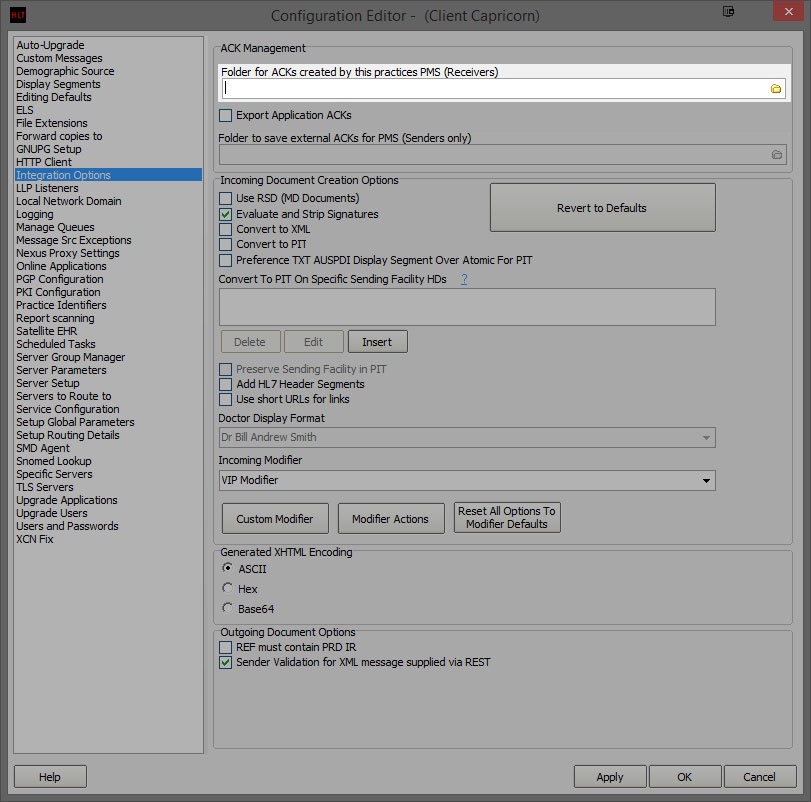
Set the ACK Management path to the C: Drive, For example:
C:\MO\Results\VIP\Outgoing
Check that the Incoming Modifier is set to VIP Modifier.
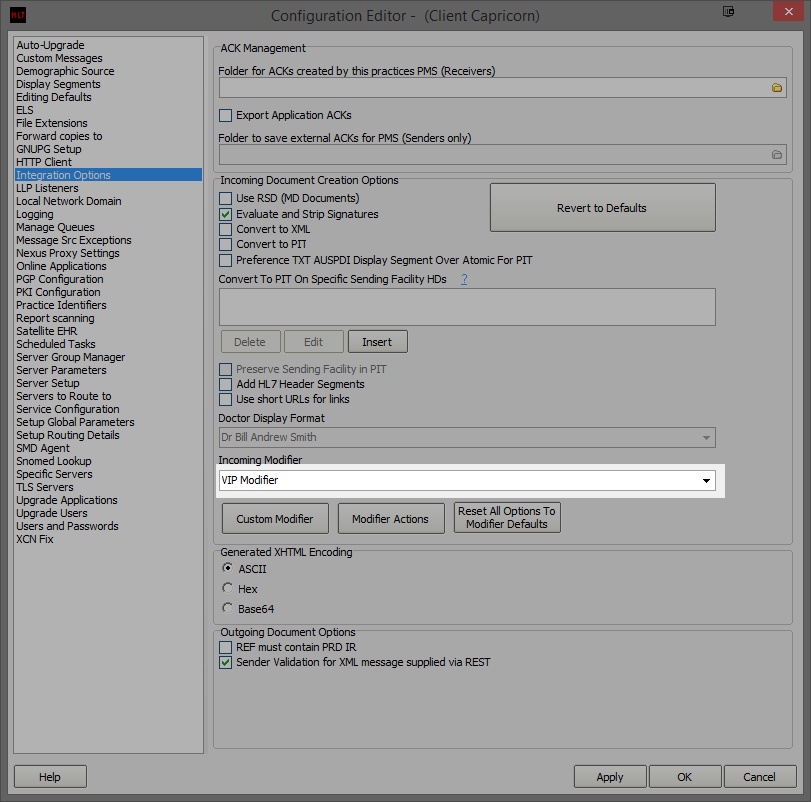
Select Server Parameters from the left panel.
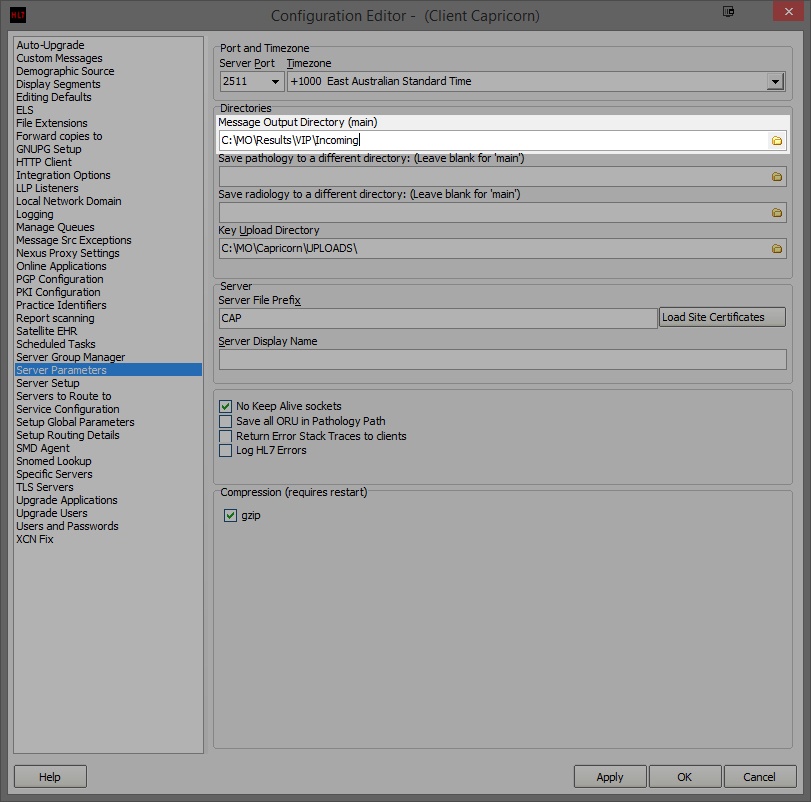
Under the Message Output Directory (main) set the results import path.
The recommended Import path is:C:\MO\Results\VIP\Incoming
However if you wish to separate Pathology and Radiology, Set the following paths accordingly.
Pathology - C:\MO\Results\VIP\Path Rad Radiology - C:\MO\Results\VIP\Path Rad
Paths can be set individually for each organisation if requested from within the contact configuration.If the folders do not exist you must create them.
Make sure the Results folder has Modify, Read and Write permissions, AND is shared on the Network.
The configuration is complete. Click Apply and OK
VIP.net Configuration
Open VIP.net, and click on ‘Setup’, ‘Practice preferences’ and select ‘General Preferences’.
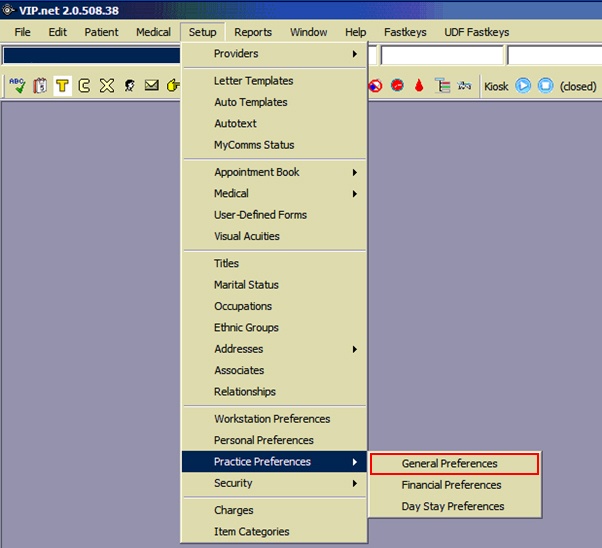
Select the ‘Communications’ tab. Under ‘Batching’, Select ‘Medical-Objects’, and Click the ‘Details’ button.
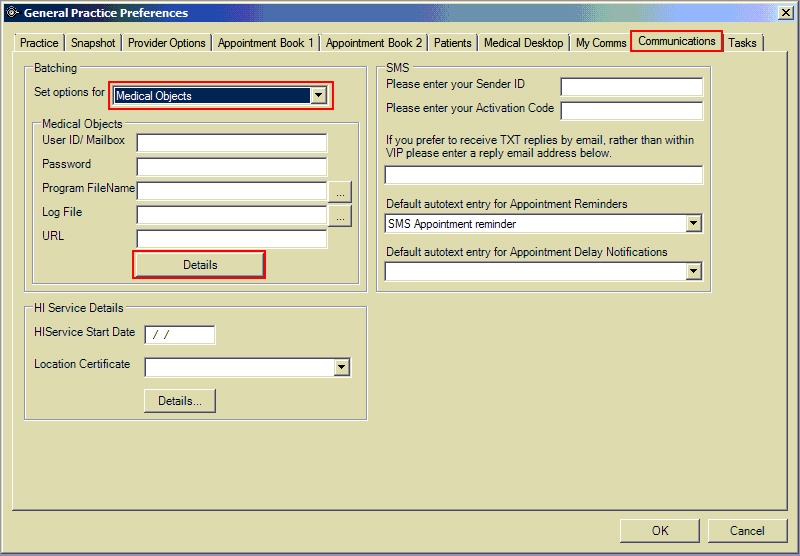
Here you can set the Incoming and Outgoing directory – use UNC Paths for both, for the paths we set up earlier. For example
\\MO\Results\Incoming
\\MO\Results\Outgoing
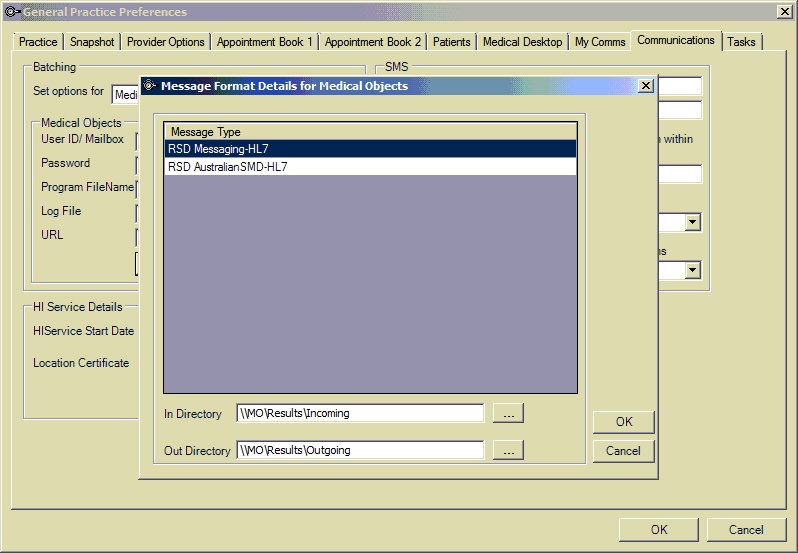
Receiving Lab Results
If the site receives results from multiple Radiology and Pathology providers, VIP needs to have those Radiology and Pathology organisations created.
Press F2 to open the following window.
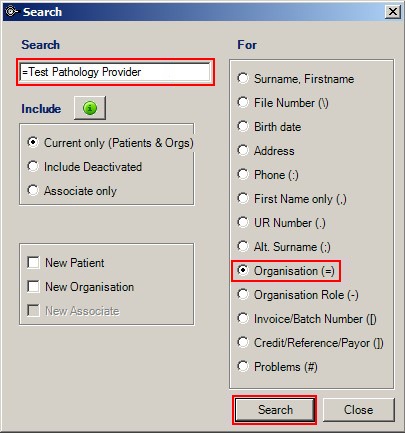
Type the name of the organisation, select ‘Organisation’ from the right hand panel and click Search.
If the organisation doesn’t exist, tick ‘new organisation’ to create it.

On the screen that appears, Go to the Investigations Provider Details tab, and click ‘File Transfer’.
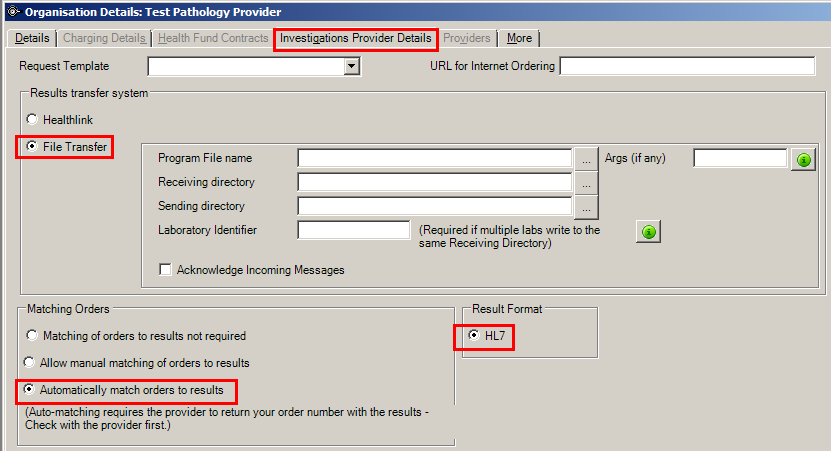
Set the receiving directory to the file path created earlier unless specified otherwise. Use UNC Paths.\\MO\Results\VIP\Path Rad
The Outgoing path is for acknowledgments. Set this path to:\\MO\Results\VIP\Outgoing
And check the box that says "Acknowledge Incoming Messages".
The Lab identifier is used to differentiate results from different companies. If the site receives from more than one Pathology/Radiology Organisation, you may need to set this option. This should be unique to each lab, located in the first line of the result.
Make sure ‘Automatically match orders to results’, and HL7 are ticked. Please note that the HL7 button is off by default.

Viewing Reports
To View reports, Press F4, and look to the bar on the right side of the VIP interface. Under Communication Type, Tick ‘Incoming’, ‘Correspondence’ and ‘Referral’.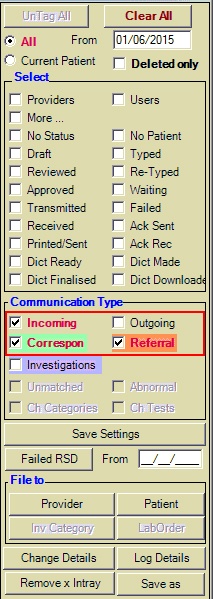
To manually import results go to File, Communications, and select Services. Select Medical-Objects, and select Proceed.
- No labels